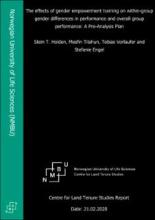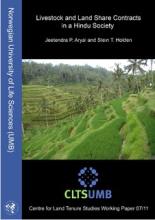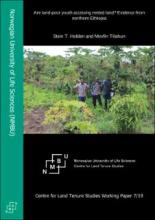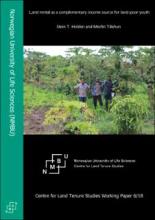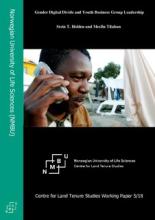/ library resources
Showing items 1 through 9 of 21.This Pre-Analysis Plan is for a Randomized Control Trial (RCT) for recently formed youth business groups in Tigray Region of Ethiopia. Resource-poor rural youth are given a business opportunity by being allocated a rehabilitated land area where they can establish a joint business.
This paper examines factors related to the existence of a livestock rental market in western Nepal and assesses whether this is associated with caste differentiation and land rental market participation.
Continued strong population growth in already densely populated rural areas in parts of Sub-Saharan Africa makes it harder for youth to choose agriculture as their main source of income. We investigate whether near landless youth still can access rented land as a complementary source of income.
The caste system is an intricate part of the institutional structure as well as class formation, political instability and conflicts in Nepal. The most severely discriminated group in the caste system is the Dalits, the so-called “untouchables”.
Ethiopia. Access to agricultural land is a constitutional right for rural residents of Ethiopia. We used survey data from the relatively land abundant districts of Oromia Region and from the land scarce districts of Southern Nations, Nationalities and Peoples’ (SNNP) Region.
Continued high population growth in already densely populated rural areas in parts of Sub-Saharan Africa makes it harder for youth to choose agriculture as their main source of income. We investigate whether near landless youth can still access rented land as a complementary source of income.
We study how social preferences and norms of reciprocity are related to generalized and particularized trust among members of youth business groups in northern Ethiopia. Members of these groups are recruited among land-poor rural youth.
Youth unemployment and migration are growing challenges that need more political attention in many countries, particularly countries with rapid population growth and economic transformation.
We assess the gender difference in mobile phone ownership among youth business group members, and how it affects election into leadership and group board positions in recently established rural youth business groups in northern Ethiopia.
Нумерация страниц
Land Library Search
Through our robust search engine, you can search for any item of the over 73,000 highly curated resources in the Land Library.
If you would like to find an overview of what is possible, feel free to peruse the Search Guide.

